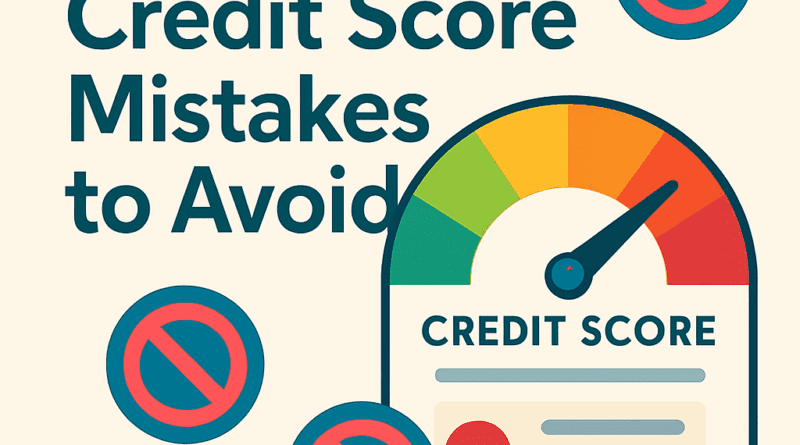5 Common Credit Mistakes That Are Quietly Killing Your Score
As someone who has spent over three decades in the banking world, I can tell you this with certainty: most credit score damage doesn’t come from huge mistakes — it comes from small, everyday habits.
I’ve seen clients with great incomes get denied for loans. Not because they were reckless, but because they didn’t understand how the credit system really works.
So let’s talk about five of the most common mistakes people make — and how to avoid them.
1. Paying Late — Even Just Once
This is the biggest and most damaging mistake. Even one missed payment can drop your score by 60 to 100 points, especially if your credit history is young.
Real-life example:
I once had a client — a small business owner — who missed a credit card payment by three days. Not because he couldn’t pay, but because he forgot. His score dropped from 740 to 660 overnight. That one late payment followed him for nearly two years.
Tip: Set up automatic payments or at least calendar reminders. One late payment costs more than most people think.
2. Using Too Much of Your Credit Limit
Your “credit utilization ratio” is how much of your available credit you’re using. Going above 30% of your limit sends a signal to lenders that you may be overextended.
Banker’s insight:
I’ve seen applicants with no late payments still stuck in the “fair” score range just because they max out their cards monthly — even if they pay in full later.
Tip: Keep your usage under 30%, and ideally under 10% for the best impact.
3. Closing Old Credit Cards
Many people think closing unused cards is a good move. But this can hurt your credit age and available credit, both of which affect your score.
True story:
One client proudly told me she closed five old store cards to “clean up” her profile. Within a month, her credit score dropped by 40 points — not because of debt, but because her average credit history shrank drastically.
Tip: Don’t close old cards unless there’s an annual fee or a risk. A quiet, unused card in the background can help your score.
4. Applying for Too Much Credit Too Fast
Every time you apply for a loan or card, a hard inquiry is added to your report. Too many in a short time suggests risk.
Seen it firsthand:
You’d be surprised how many people walk into a dealership, apply at 3 banks for a car loan the same day, then open a credit card offer at the checkout line — and wonder why their score drops.
Tip: Space out applications. Do your rate shopping smartly and in short windows if necessary (especially for auto loans and mortgages).
5. Ignoring Your Credit Report
Many people don’t check their credit reports until they’re applying for something big — and by then, it’s too late to fix errors or fraud.
Banker’s memory:
One customer discovered a $1,200 collection on his report that wasn’t even his. It had been sitting there for over 18 months, silently eating away at his score.
Tip: Check your credit reports at least once a year — for free — at AnnualCreditReport.com. Dispute anything that looks wrong immediately.
Final Thoughts
These mistakes don’t always come from financial recklessness — most of the time, they come from a lack of information.
CreditFixerUSA.com exists to close that gap. You don’t need to be perfect. You just need to stay informed, stay consistent, and avoid the quiet killers of your credit health.
